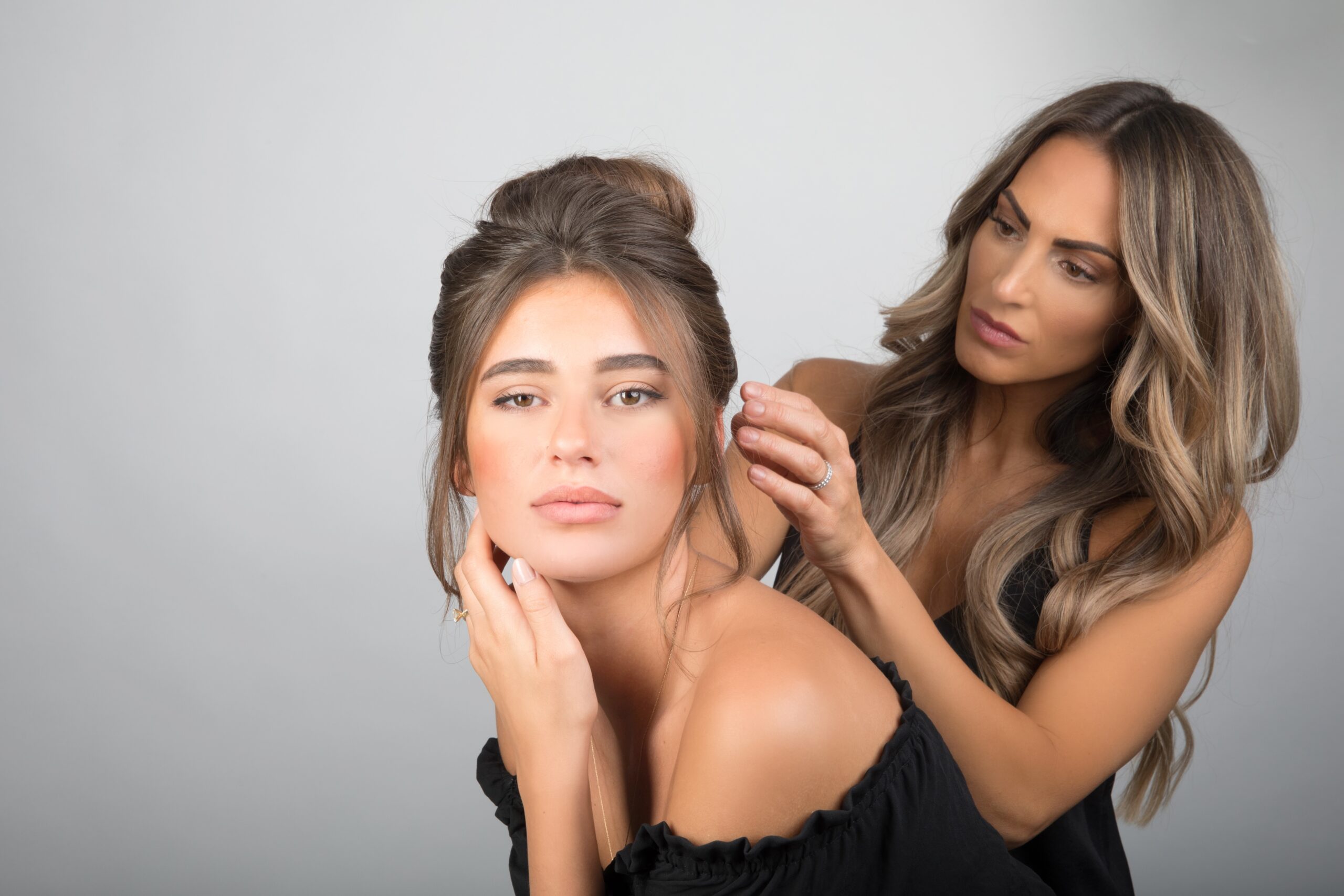I’ve always been obsessed with healthy eating and the beauty industry. As consumers, we are always looking for that miracle product to moisturize, repair, help grow, or make our hair shinier. Yes, good products make a positive impact, but I’m a believer that beautiful hair has to start from within. So I teamed up with Danielle Kiser MS, RDN, CDN, or also known as The upstate Dietitian. – “As a dietitian, my goal is to make people feel and look their best. That doesn’t always mean weight management. Sometimes it means adjusting the diet in ways that make people’s hair and skin look younger and healthier.” Together, Danielle and I will teach you the best foods to help you grow and maintain healthy hair!
Many factors can impact hair health, such as genetics, hormone imbalances, medical conditions, and lifestyle factors. We can’t control our genes, but we can control our lifestyle by managing stress and eating a healthy diet. Nutrients that are especially important in hair health include protein, essential fatty acids, vitamins, and minerals.
Protein
Our hair is made of mostly protein, more specifically keratin. Therefore if you aren’t getting enough, it can wreak havoc on the quality and quantity of your hair. Protein is found in a variety of food such as chicken, turkey, lean meat, fish, beans/legumes, tofu, quinoa, nuts, and seeds.
Omega 3 Fatty Acids
Omega 3 fatty acids have evidence that they can contribute towards making hair stronger, shinier, and prevent breakage.
Essential fatty acids are called “essential” because your body cannot make them; they need to come from the food you consume. Foods with omega 3’s include salmon, tuna, mackerel, herring, sardines, and other fatty fish. It can also be found in flaxseed oil, walnuts, and almonds. Plant-based sources have less bioavailability (aren’t absorbed as well).
Minerals
There are multiple minerals that are important in achieving a healthy head of hair. A few to mention are zinc, iron, and magnesium. Zinc plays a role in cellular reproduction and building proteins, both of which are needed for hair growth and health. Iron makes red blood cells that transport oxygen throughout the body. Insufficient iron can’t carry oxygen to the hair bulb to create new hair cells, slowing the growth of new hair.
Additionally, magnesium can help increase blood flow to hair follicles. Deficiencies in any of the above minerals can cause hair loss, dullness, and thinning. Food sources are listed below.
- Zinc Foods: High sources include meat (dark poultry meat, beef, and pork), fortified cereals, beans, oatmeal, cashews, almonds, and dairy products.
- Iron Foods: Fortified cereals/grains/pasta, seafood, soybeans, lentils, dark leafy greens, dried fruits.
- Magnesium Foods: Nuts/Seeds, nut butter, whole grains, cocoa, and spinach.
Vitamins
Vitamins also play a role in hair health. Inadequate fruit and vegetable intake can lead to deficiencies. Eating a diet rich in produce of all different colors ensures you are meeting your needs. Vitamin C, B6, and B12 have research showing a correlation with healthy hair. B12 deficiency also causes anemia, which often results in hair loss. Vitamin C has antioxidant properties and is involved in skin and collagen health. Food sources are listed below.
- B6 and B12: found in mostly animal products; seafood/fish, eggs, meat, poultry, and dairy products. Vegans/vegetarians should aim for fortified foods (i.e. cereals, tofu).
- Vitamin C: easily destroyed by heat or light and a very unstable vitamin. It’s best to eat fruits/veg fresh and raw (uncooked) to get the most vitamin C! Opt for whole fruits versus juices – juice = higher in calories/sugar, lower in fiber. Excellent sources include peppers, strawberries, broccoli, sweet potatoes, Brussel sprouts, and kiwi.
Who is ready to start eating their way to healthier hair?
